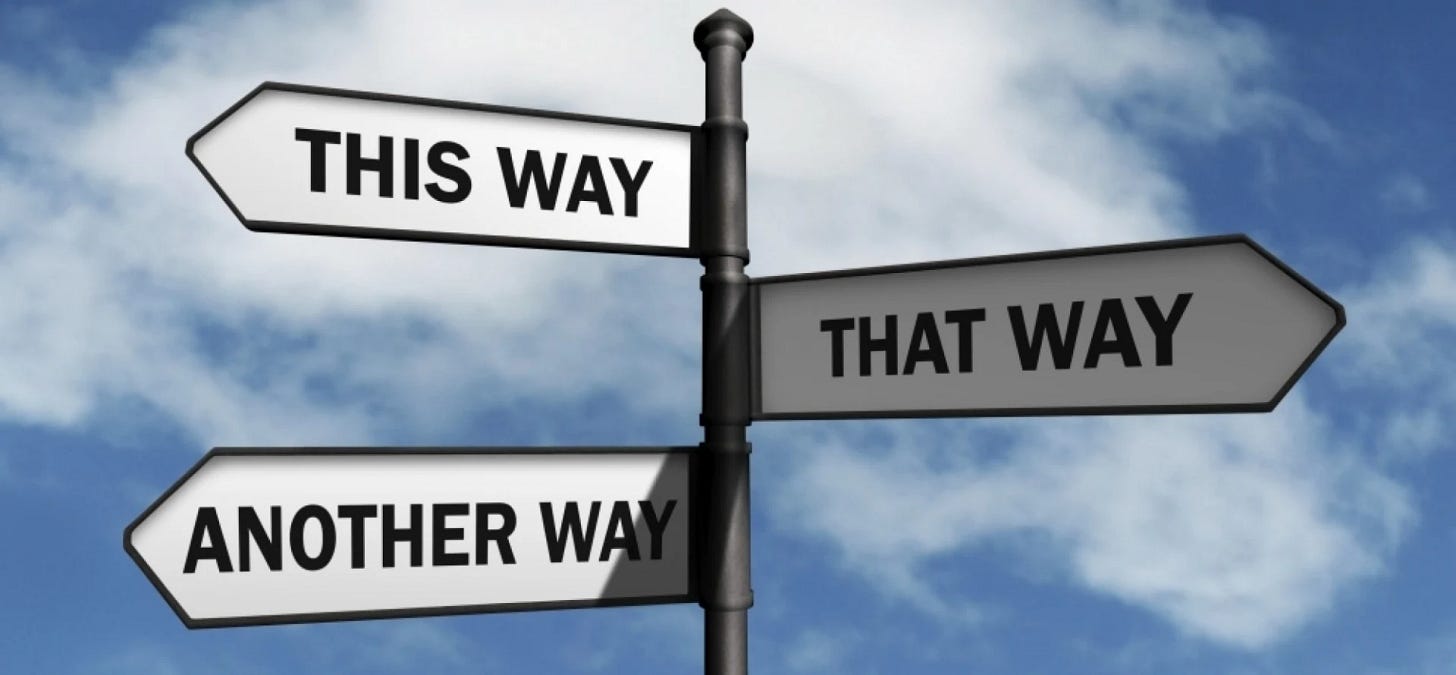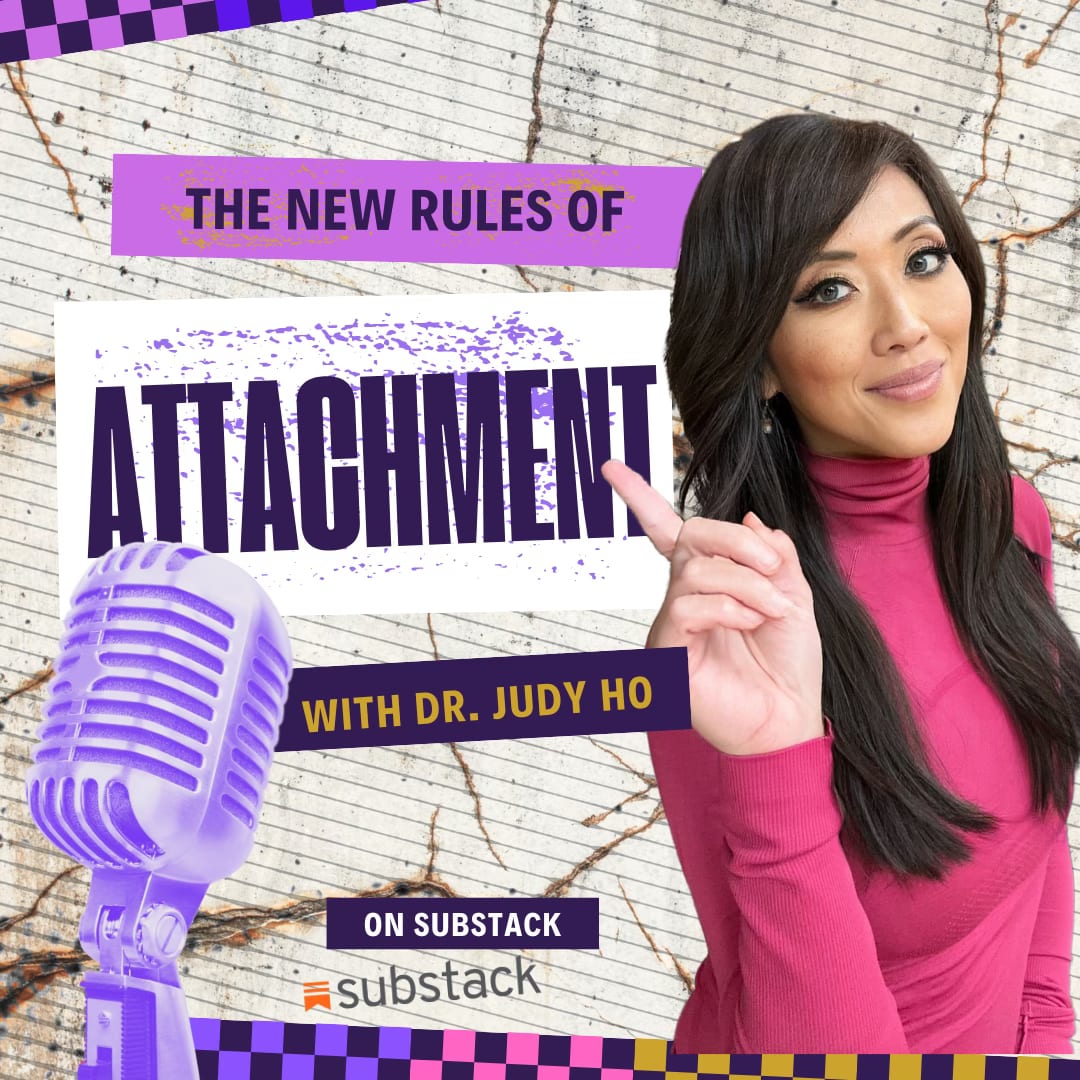Picture this: It’s midday at work and you’re stumped about what to make for dinner when you get home. You start to think that DoorDash might be better. But where should you order from? While you wait for the food, you start to wonder how you should wind down for the day. A movie? A book? That show on yet another streaming service?
If you’ve ever felt mentally drained during the afternoon after making even the simplest decision, you’re not alone. There’s a hidden culprit behind that foggy feeling: decision fatigue.
Now, for a more in-depth look at how to regain mental clarity, you check out the latest episode of Mental Health Bites (you can listen right here in substack, on Apple, Spotify, or watch on YouTube). In this post, we’re going to explore some ways to simplify your mental load, feel more in control, and mitigate that daily energy drain of decision fatigue.
What’s Decision Fatigue?
Decision fatigue is the mental exhaustion that builds up from, well, making decisions.
You might start the day energized and clear-headed, tackling tasks efficiently and with ease, but by the afternoon indecision and procrastination may start to set in. Each choice you make chips away at your brain’s capacity to make high-quality decisions later on. The result is that by the evening, you might feel completely tapped out, even if your day wasn’t particularly stressful.
Decision fatigue can sneak up on you. Think about it. How many decisions have you already made today? From deciding what’s for breakfast, to choosing what to wear, to prioritizing certain emails, our days are filled with hundreds of micro-decisions. And it can happen to anyone. A study published in Proceedings of the National Academy of Sciences found that judges reviewing parole cases were far more likely to grant parole early in the day. And, as the day progressed, decisions became increasingly conservative—favoring the easiest, safest option, which was to deny parole.
The takeaway?
The quality of our decisions declines when we make multiple decisions throughout the day.
Why It’s Important to Address Decision Fatigue

As you can see from the example above with court judges, decision fatigue doesn’t just affect small decisions. It can impact major life choices, your productivity at work, and even how you treat your loved ones.
Poor decisions can lead to stress and regret.
Procrastination can snowball, creating overwhelming to-do lists that grow each day.
Repeatedly putting off certain decisions can contribute to anxiety.
Long term, decision fatigue can erode your self-esteem and confidence, making you second-guess even the simplest choices.
Addressing decision fatigue isn’t just a life hack—it’s essential for maintaining good mental health.
Combating Decision Fatigue with the "Three-Choices Rule"
Limiting choices doesn’t mean limiting joy. It’s about streamlining decisions so you have more energy for what excites and fulfills you. Over time, this reduces stress and sharpens your focus.
The Three-Choices Rule involves limiting your options to just three choices when making routine decisions. This is a technique I use with my workout routine. Instead of deciding what workout I should do every day, I rotate between strength training, yoga, or a long walk. By keeping it simple, I avoid the internal debate and just do it. Similarly, I do this with my lunches. I rotate between three options for lunch, so every day, I’m only picking from those three options at lunchtime.
Step 1: Identify repeated decisions. Look at areas in your life where you constantly make the same decisions (meals, workouts, outfits, etc.)
Step 2: Create three go-to options. Pick three solid, reliable choices. For example, if it’s deciding what to eat for lunch, select three meals you enjoy and rotate between them.
Step 3: Commit for a week. Stick to these three options for at least one week and notice the mental ease it creates.
What’s great about the three-choice rule is you can change your three options at any time. When I start to get bored of my three-item menu, I just swap the old choices out for some new ones., but I always make sure there are only three to pick from.
Did this advice speak to you?
If it did, I encourage you to share it with a friend who’s also experienced decision fatigue. (And, if it helps, you can even pick three friends who really need it.)
Order The New Rules of Attachment here: https://bit.ly/3MvuvvF
Take my Attachment Styles Quiz!
About me:
Dr. Judy Ho, Ph. D., ABPP, ABPdN is a triple board certified and licensed Clinical and Forensic Neuropsychologist, a tenured Associate Professor at Pepperdine University, television and podcast host, and author of Stop Self-Sabotage. An avid researcher and a two-time recipient of the National Institute of Mental Health Services Research Award, Dr. Judy maintains a private practice where she specializes in comprehensive neuropsychological evaluations and expert witness work. She is often called on by the media as an expert psychologist and is also a sought after public speaker for universities, businesses, and organizations.
Dr. Judy received her bachelor's degrees in Psychology and Business Administration from UC Berkeley, and her masters and doctorate from SDSU/UCSD Joint Doctoral Program in Clinical Psychology. She completed a National Institute of Mental Health sponsored fellowship at UCLA's Semel Institute.















Share this post